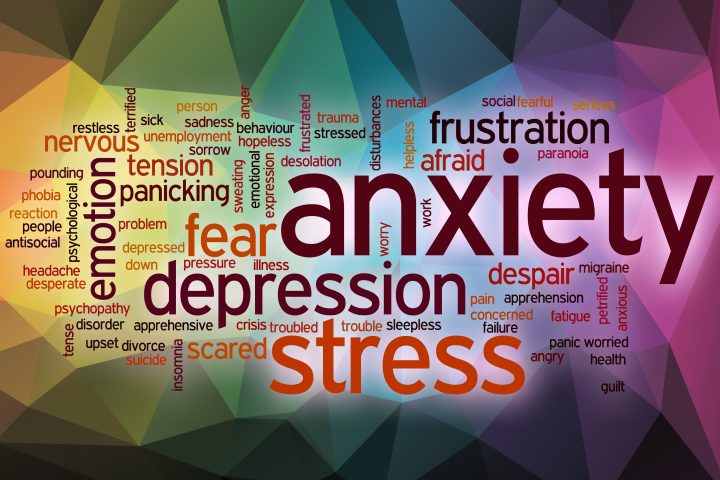Emails pile up in your inbox, each notification a tiny jolt of stress. You glance at the clock – still hours until lunch. A familiar tightness constricts your chest, your breath coming in shallow gasps. This isn’t just a bad day; it’s a daily battle with workplace anxiety, a silent struggle plaguing some individuals in the workplace.
Workplace anxiety, often referred to as work stress, transcends the occasional frustration or missed deadline. It’s a persistent disquietude, a gnawing sense of unease that permeates the professional sphere. It manifests as emotional exhaustion, a decline in productivity, and strained relationships with colleagues. This pervasive anxiety not only impacts our work performance but also bleeds into our personal lives, affecting our overall well-being.
The distinction between workplace anxiety and generalized anxiety disorder is crucial. While both involve excessive worry, workplace anxiety is more focused, rearing its head primarily in work-related situations. You might find yourself dreading Mondays and experiencing a surge of anxiety before meetings or presentations, yet feeling relatively calm in social situations outside of work. However, this doesn’t diminish the very real impact it has on our daily lives.

The roots of workplace anxiety are as diverse as the individuals experiencing it. It can be fueled by external factors – relentless deadlines, a demanding boss, a competitive work environment devoid of collaboration. These external stressors create a pressure cooker, where every misstep feels magnified and the fear of failure looms large.
Even seemingly innocuous factors, like a lack of control over daily tasks or a poorly defined role, can contribute to anxiety. When our work lacks purpose, a sense of meaninglessness can set in, further amplifying unease and dissatisfaction.
So, how do you cope with the pressure of a role where mistakes are not an option? Here are some strategies:
Acknowledge and Accept: Recognize that feeling anxious in high-pressure situations is normal. Instead of trying to suppress or ignore your anxiety, acknowledge its presence and accept it as a natural response to the circumstances. By normalizing your feelings, you can prevent them from escalating into overwhelming stress.
Prepare Thoroughly: Preparation is key to reducing anxiety in high-stakes situations. Take the time to thoroughly familiarize yourself with the task at hand, review relevant information, and practice any necessary skills or procedures. The more confident you feel in your abilities, the less anxious you’re likely to be when faced with pressure.
Focus on the Present: Anxiety often stems from worrying about potential future outcomes or dwelling on past mistakes. Instead of getting caught up in “what ifs” or “should haves,” focus your attention on the present moment. Stay grounded by concentrating on the task in front of you and taking each step one at a time.
Utilize Relaxation Techniques: Incorporate relaxation techniques into your routine to help calm your mind and body. Deep breathing exercises, progressive muscle relaxation, and mindfulness meditation can all be effective ways to reduce anxiety and promote a sense of calmness and control.
Develop Coping Strategies: Identify coping strategies that work best for you and incorporate them into your daily life. This could include activities such as exercise, journaling, spending time in nature, or engaging in hobbies that help you relax and unwind. Having a repertoire of coping mechanisms can provide you with a sense of resilience and enable you to navigate stressful situations more effectively.
Seek Support: Don’t hesitate to reach out for support when you need it. Whether it’s talking to a trusted colleague, seeking guidance from a mentor, or consulting with a mental health professional, having a support network in place can provide invaluable assistance in managing anxiety. Remember, you don’t have to face challenges alone.
Practice Self-Compassion: Be kind to yourself, especially in moments of heightened stress. Avoid self-criticism and negative self-talk, and instead, practice self-compassion by treating yourself with the same understanding and kindness you would offer to a friend facing similar challenges.
Maintain Perspective: Keep things in perspective by reminding yourself that no one is perfect, and mistakes are a natural part of the learning process. While striving for excellence is admirable, it’s essential to recognize that setbacks and failures are opportunities for growth and development.
Seek Professional Help: If anxiety significantly interferes with your ability to perform effectively or negatively impacts your well-being, consider seeking professional help. A mental health professional can provide you with personalized support, therapy, and strategies for managing anxiety in high-pressure environments.
In conclusion, managing anxiety in high-pressure situations requires a combination of self-awareness, preparation, relaxation techniques, support, and self-compassion. By incorporating these strategies into your daily life and developing a proactive approach to managing anxiety, you can navigate even the most demanding environments with confidence and resilience. Remember that while you may not always be able to control external circumstances, you have the power to influence how you respond to them.
The good news is that workplace anxiety is not an inevitable consequence of professional life. By recognizing the signs, understanding the triggers, and implementing effective coping mechanisms, we can transform this struggle into a manageable hurdle. The following sections will delve deeper into the telltale signs of workplace anxiety, explore strategies for managing it, and discuss the importance of seeking professional support when needed. Remember, acknowledging the struggle is the first step towards reclaiming control and fostering a healthier relationship with work.
Disclaimer: The strategies outlined above are general recommendations and may not be suitable for everyone. It’s important to consult with a qualified professional for personalized advice tailored to your specific circumstances. Additionally, while these strategies can be helpful in managing anxiety, they are not a substitute for professional mental health treatment. If you are experiencing severe or persistent anxiety, please seek guidance from a mental health professional.




